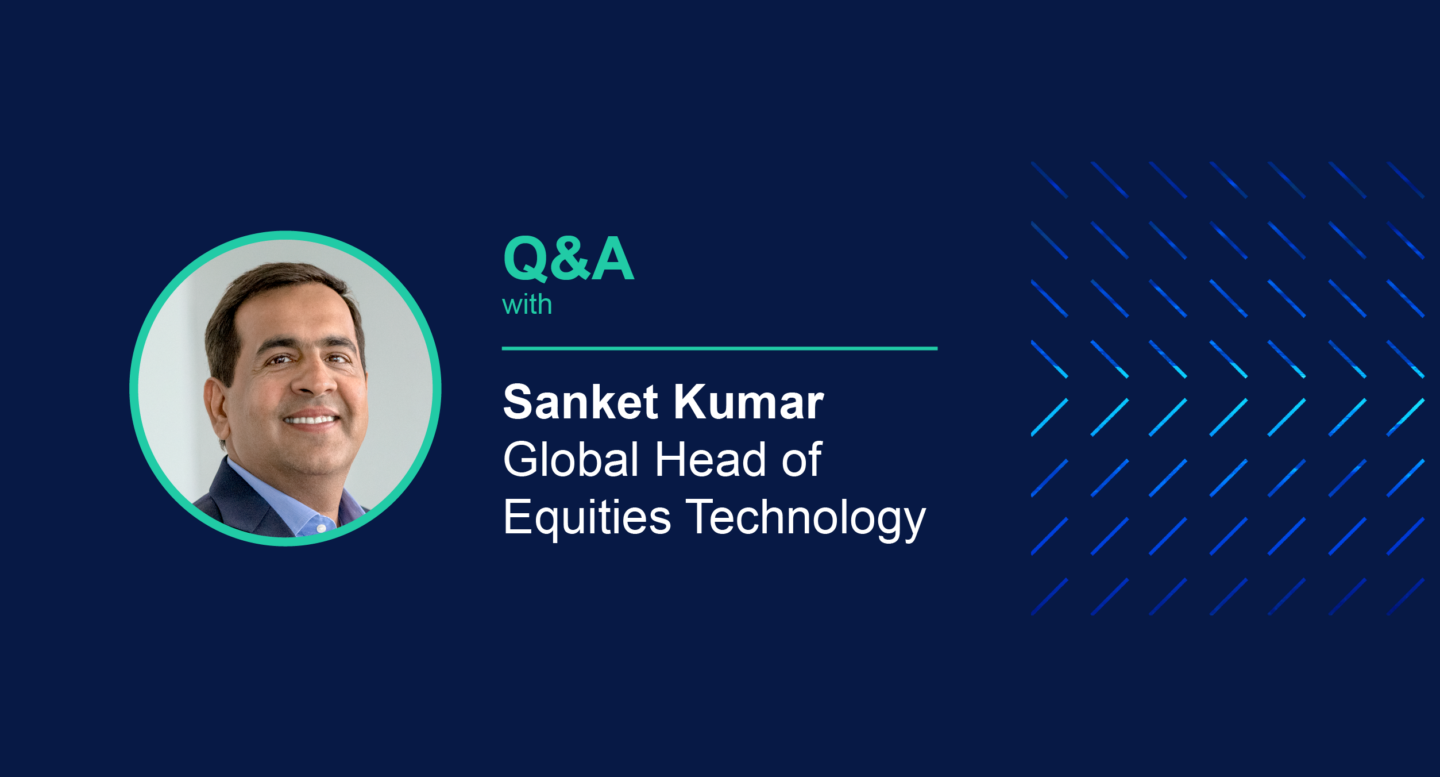Sanket Kumar, Millennium’s Global Head of Equities Technology, shares his perspective on the role of entrepreneurship in technology teams, and the importance of fostering an entrepreneurial mindset to drive innovation and stay ahead in an increasingly competitive landscape.

What does entrepreneurship mean within technology and why is it important to you?
Technology and innovation thrive on new ideas, and in a competitive market, I believe the ability to constantly challenge the status quo is what keeps organizations ahead. Throughout my career, I’ve always thought that when teams become complacent, they risk becoming stagnant. Repetition in our work can lead to missed opportunities. It’s an entrepreneurial mindset that brings new ideas to the table.
Technology breakthroughs come from not just emulating others but improving on existing ideas or rewriting the playbook altogether.
How can organizations cultivate a culture that empowers technology talent?
For technology teams to excel, I believe they must be empowered to leverage their skills to the fullest extent. This means creating a culture that allows for experimentation of new ideas and new technology.
At Millennium, our technologists collaborate closely with investment teams, gaining firsthand insights into their needs and building tailored tools to meet their specific objectives. This partnership fosters a dynamic exchange of ideas, where engineers, portfolio managers, and other critical stakeholders collaborate to develop solutions to new challenges and opportunities.
The goal is to achieve seamless alignment between technology and investment strategy. Rather than building in isolation, organizations must ensure that technologists understand the real-world problems they are solving.
How do you encourage technologists at Millennium to think entrepreneurially?
I believe almost every successful tool or process starts as a grassroots idea, and over time evolves to become integral to business operations. At Millennium, we encourage our teams to see beyond their immediate tasks and think about long-term impact. For example, the firm’s use of emerging technology like generative AI often begins as a proof of concept and evolves through continuous feedback, while scaling the use cases with the most potential.
How does fostering an entrepreneurial mindset translate into business impact?
From a technology standpoint, competitive advantage comes from being able to move faster, iterate smarter, and execute better than others. In rapidly evolving markets, this requires an entrepreneurial mindset and agile development process that is tied to the specific needs of the business. Our technologists don’t just write code, they are working to solve business problems in smarter and more efficient ways.



